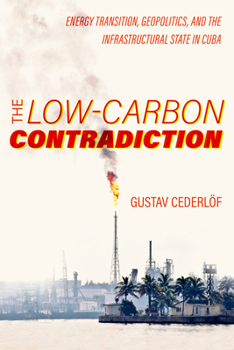The Low-Carbon Contradiction: Energy Transition, Geopolitics, and the Infrastructural State in Cuba Volume 13
In the pursuit of socialism, Cuba became Latin America's most oil-dependent economy. When the Soviet Union collapsed, the country lost 86 percent of its crude oil supplies, resulting in a severe energy crisis. In the face of this shock, Cuba started to develop a low-carbon economy on the basis of economic and social reform rather than high-tech innovation. The Low-Carbon Contradiction examines this period of rapid low-carbon energy transition, which many have described as a "Cuban miracle" or even a real-life case of successful "degrowth." Working with original research from inside households and workplaces, universities and government offices, Gustav Cederl f retells the history of the Cuban Revolution as one of profound environmental and infrastructural change. In doing so, he opens up new questions about energy transitions, their politics, and the conditions of a socially just low-carbon future. The Cuban experience shows how a society can transform itself while rapidly cutting carbon emissions in the search for sustainability.
Format:Hardcover
Language:English
ISBN:0520393120
ISBN13:9780520393127
Release Date:August 2023
Publisher:University of California Press
Length:260 Pages
Weight:1.06 lbs.
Dimensions:0.8" x 5.8" x 9.1"
Customer Reviews
0 rating





